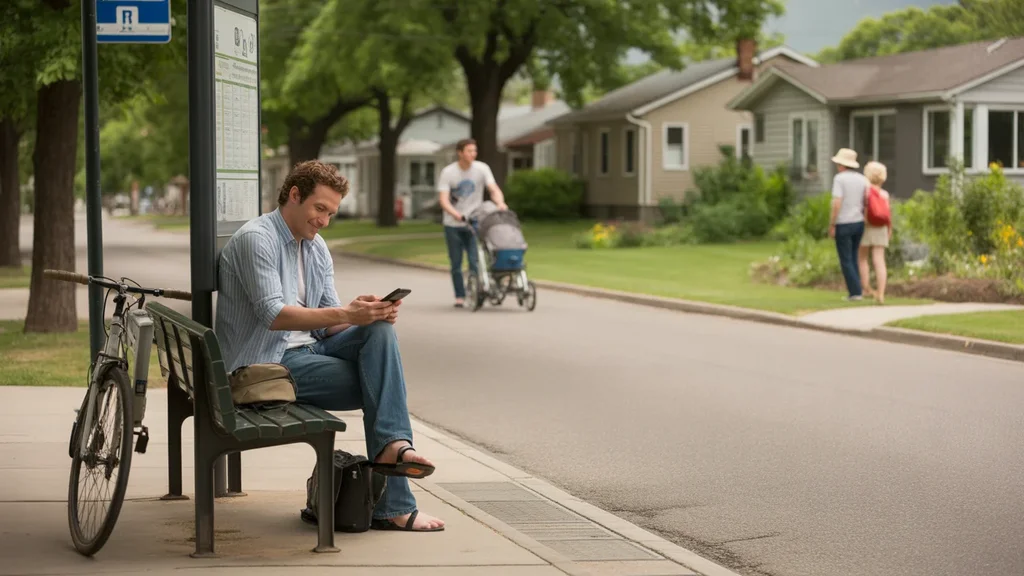What You’ll Spend on Transit in Boulder
As a Boulder resident, understanding public transportation costs is key to managing your monthly budget. In 2025, a 30-day local bus pass in Boulder typically costs $114, while a one-way fare is $3.00. Regional passes, which include travel to Denver, start at $200 per month. Overall, most commuters in Boulder spend between $100-$300 per month on transit, depending on their route and frequency.
Boulder’s public transportation system is managed by the Regional Transportation District (RTD), which serves eight counties in the Denver metropolitan area. RTD offers a variety of fare options, including single rides, day passes, monthly passes, and annual passes. Discounted rates are available for students, seniors, and individuals with disabilities.
Transit Options Available

Boulder’s transit network includes several modes of transportation:
- Local and regional buses (RTD)
- Express buses to Denver and nearby cities
- The Flatiron Flyer bus rapid transit (BRT) service
- Park-n-Ride lots for commuters
- Access-a-Ride paratransit service
RTD’s local buses cover most of Boulder, with key routes running along 28th Street, 30th Street, Arapahoe Avenue, and Broadway. The Flatiron Flyer BRT provides frequent service between Boulder and Denver, with stops at major transit hubs like Boulder Junction and Union Station.
For those commuting to Denver or nearby cities, RTD offers express buses and regional routes. These services are more expensive than local buses but provide a convenient alternative to driving during peak hours.
Monthly Cost Breakdown
The cost of public transportation in Boulder varies depending on your commuting needs. Here’s a breakdown of estimated monthly costs for common scenarios:
| Commuter Type | Monthly Cost |
|---|---|
| Local bus, 5 days per week | $114 |
| Local bus, weekends only | $48 |
| Regional bus to Denver, 5 days per week | $200 |
| Express bus to Denver, 3 days per week | $162 |
🏆 Winner: For most Boulder residents, a local 30-day pass offers the best value at $114 per month. If you commute to Denver daily, a regional pass is likely more cost-effective than buying individual fares.
Is Public Transit Worth It in Boulder?
While Boulder is a relatively bike-friendly city, public transportation remains a convenient and affordable option for many residents. The average bus commute in Boulder is around 30 minutes, compared to 20 minutes by car. However, when you factor in parking costs, which can exceed $100 per month in downtown Boulder, taking the bus can lead to significant savings.
For example, let’s say you live in South Boulder and work downtown. Driving would cost you roughly $50 per month in gas, plus $100 or more for parking. Taking the bus, on the other hand, would cost $114 for a monthly pass. In this scenario, public transit fits comfortably into a typical Boulder monthly budget and helps you avoid the hassle of parking.
Ways to Save on Transit
There are several ways to reduce your public transportation costs in Boulder:
- Students at CU Boulder and other local colleges can get discounted passes through RTD’s CollegePass program.
- Seniors (65+), individuals with disabilities, and Medicare recipients are eligible for reduced fares.
- Some employers offer EcoPass, which provides unlimited RTD rides at a discounted rate.
- Low-income riders may qualify for RTD’s LiVE program, which offers 40% off regular fares.
It’s also worth checking if your employer offers pre-tax transit benefits, which allow you to set aside a portion of your paycheck for transportation costs tax-free.
FAQs
What is the cheapest way to get around Boulder?
Walking and biking are the most affordable ways to get around Boulder, especially for short trips. For longer distances, local buses are the cheapest option at $3.00 per ride or $114 for a monthly pass.
Are there monthly transit passes in Boulder?
Yes, RTD offers 30-day passes for local, regional, and airport routes. Local passes start at $114, while regional passes (which include Denver) begin at $200.
Is public transit reliable for work commutes?
Boulder’s bus system is generally reliable, with most routes running every 15-30 minutes during peak hours. However, service may be less frequent in the evenings and on weekends. The Flatiron Flyer BRT offers frequent, reliable service to Denver.
Getting Around Smarter in Boulder
Public transportation in Boulder offers an affordable, eco-friendly alternative to driving. While costs can add up, choosing the right pass or fare option for your needs can help you save money and reduce stress on your daily commute.
Of course, the best way to get around Boulder depends on your unique situation. Consider factors like your commute distance, work schedule, and monthly budget when deciding whether public transit makes sense for you. And if you’re new to Boulder, don’t forget to explore other transportation options like biking, walking, and carpooling to find the perfect fit.
